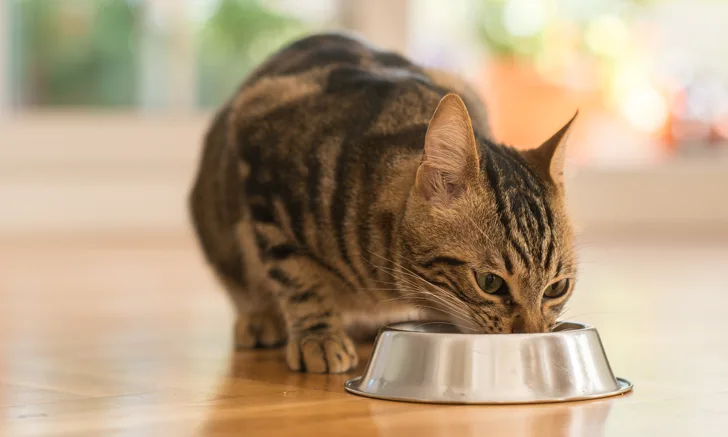
In the Literature
Karp SI, Freeman LM, Rush JE, et al. Dilated cardiomyopathy in cats: survey of veterinary cardiologists and retrospective evaluation of a possible association with diet. J Vet Cardiol. 2022;39:22-34. doi:10.1016/j.jvc.2021.11.002
The Research ...
There is an association between echocardiographic parameters and median survival time in dogs with dilated cardiomyopathy (DCM) fed diets high in pulses (eg, peas, lentils)1,2; a similar correlation may exist in cats.
This 2-part study examined possible associations among diet, taurine, and DCM in cats. A survey was distributed to board-certified veterinary cardiologists (n = 52) to evaluate for changes in frequency of DCM diagnosis in cats. Only 15% of cardiologists perceived an increase in cases over the previous 2 years; however, 92% of respondents reported seeing at least one cat with DCM each year, and 38% of respondents saw at least one cat with DCM suspected to be associated with diet in the previous 2 years. Plasma or whole blood taurine concentration was always or sometimes measured by 59% of respondents, and 80% of respondents reported they supplement taurine regardless of testing status.
Data of cats diagnosed with DCM in the previous 2 years (submitted by survey respondents) were then retrospectively evaluated. Records of 67 cats were reviewed; 37 met the inclusion criteria. Cats were divided into low pea/lentil (low PL; n = 20) and high pea/lentil (high PL; n = 14) diet groups based on diet at time of diagnosis; 3 cats were excluded due to lack of diet history. No significant difference in median survival time was identified; however, cats in the high PL group transitioned to a low PL diet after diagnosis had a significantly longer median survival time (290 days) than high PL cats not transitioned (2 days). There was no difference in median survival time between cats fed a high PL diet with no diet change and those fed a low PL diet.
An association between taurine supplementation and change in median survival time was not found. Of 13 cats that had plasma and/or whole blood taurine measured, 2 had low circulating plasma taurine levels (both were fed a low PL diet).
... The Takeaways
Key pearls to put into practice:
Diagnosis of DCM in cats is rare, but it is commonly believed that DCM has increased in frequency with increased feeding of diets high in pulses (eg, peas, lentils, beans, chickpeas).
Patients fed a high PL diet presented for congestive heart failure related to DCM appear to have significantly improved median survival time when transitioned to a low PL diet.
Association between poorer long-term outcomes in cats with DCM and high PL diets is independent of taurine status. Further evaluation is warranted to discern pathophysiologic mechanisms.
You are reading 2-Minute Takeaways, a research summary resource presented by Clinician’s Brief. Clinician’s Brief does not conduct primary research.